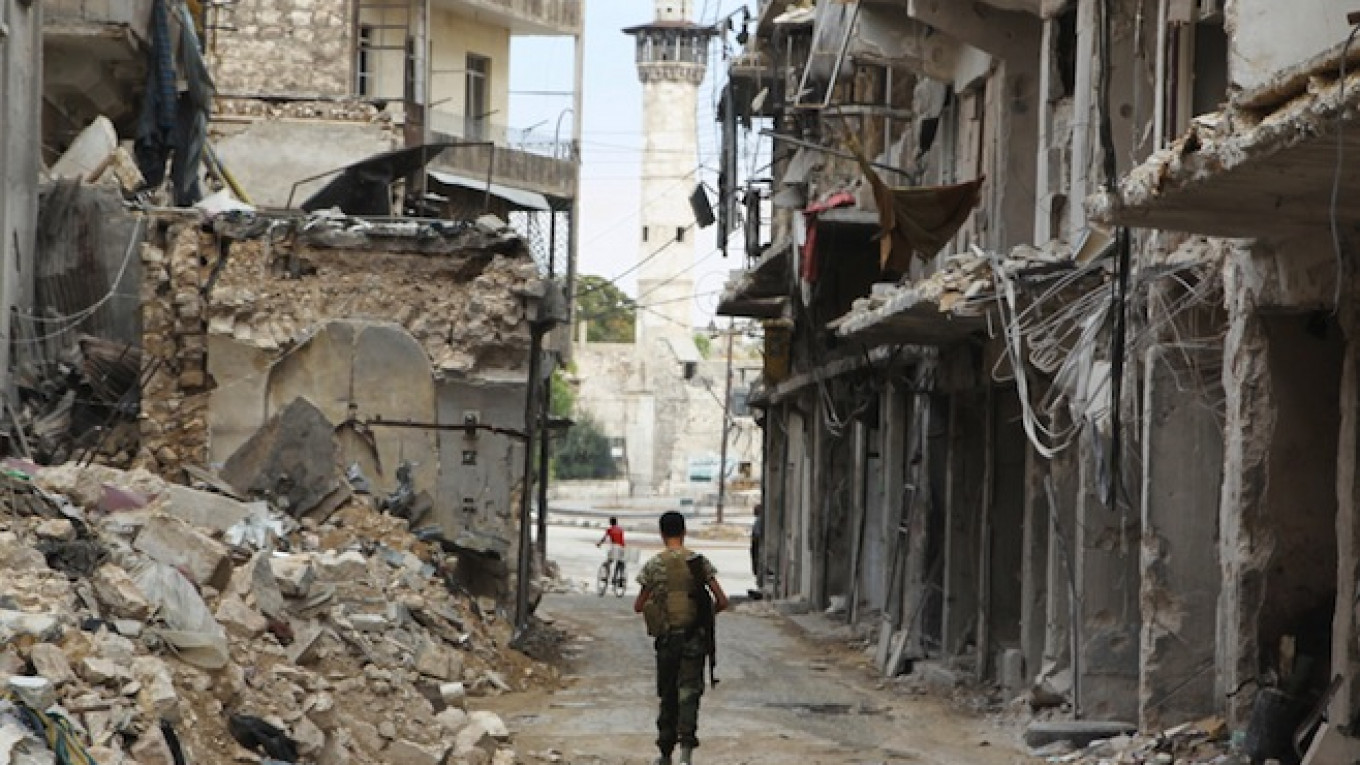 Vladimir Frolov
Vladimir Frolov
Saudi Arabia cut off diplomatic and trade ties with Iran in retaliation for the provocative ransacking of the Saudi Embassy in Tehran by what appeared to be a government-directed mob. The escalation follows the execution by Saudi Arabia on Jan. 2 of Sheikh Nimr al-Nimr, a prominent Shia cleric and a Saudi national, who was sentenced to death last year for leading peaceful protests among the Shia in the Saudi Eastern Province, the Kingdom's main oil-producing region.
This development threatens to unleash the most serious Saudi-Iran confrontation in the already destabilized Middle East, while inflaming the sectarian tensions between the region's Sunni and Shia to extreme levels of violence. Domestic considerations in both countries contributed to the escalation — a show of force by an insecure leadership in Riyadh to stamp out signs of domestic unrest; a coming parliamentary election in Iran in February where the hardliners are determined to upstage moderates led by President Hassan Rouhani. But it's the spiraling rivalry for regional dominance between the two powers in the Gulf that fuels the conflict.
While a direct military confrontation between Saudi Arabia and Iran appears unlikely, both having too much to lose from the war, and Iran, emerging from its international isolation, would be loath to scuttle this process, it is on the regional battlefields of Yemen, Iraq, Syria and Lebanon, where Tehran and Riyadh are waging bloody wars by proxy, that the impact of the latest escalation will be felt. The oil market will be another battlefield with Russia as collateral damage.
Russia may not seem to be part of this confrontation, but in reality it is now pretty much ensnared in it. Riyadh's latest escalatory moves are as much a signal to Moscow as they are to Tehran. And the message is clear — stay neutral or stay out of the region. Unfortunately, Russia has not been neutral in the great Sunni-Shia divide.
By plunging into the civil war in Syria, Moscow has allowed itself to be entangled in the Shia alliance with Iran, Assad's regime in Syria, Lebanon's Hezbollah, the sectarian Shia government in Iraq and armed Shia militias on Iran's payroll. Russia, whose Muslim population is predominantly Sunni, now finds itself bombing Sunni Arabs and Turks in Syria while protecting foreign Shia militias who are no less extremist than the Sunni jihadists Russia is fighting.
This is not a good position to be in, given that the vast majority of Muslims in the Middle East are Sunni. That the Kremlin argues that it does not distinguish between Sunni and Shia in its "war on terror" in Syria speaks volumes about the quality of its decision-making.
Russia's strongest asset in the Middle East in the post-Soviet period has been its impartiality and its ability to stay on good terms with almost all players, while avoiding becoming beholden to their narrow agendas. This accorded Russia the enviable status of an honest broker with all the freedom of maneuver it wanted, while the United States had boxed itself into a rigid anti-Iran alliance with Saudi Arabia and Israel.
That changed in 2015. U.S. President Barack Obama's reluctance to do "stupid sh..t" has now turned the United States into a free agent in the Middle East, while Russia is joined at the hip with Iran and Assad in a sectarian Shia alliance. While the United States is playing its own game in the Middle East to reduce its dependence and footprint, Russia is increasingly being played by others with no regard to Russia's national interests. It now owns Assad's bloody mess in Syria and is a target for Sunni jihadists to an extent that it was not a year ago.
The political talks between Assad's government and the Syrian opposition due to start in two weeks in Geneva could be the first casualty of the Saudi-Iranian confrontation. The Saudis are furious with the way Russia and Iran managed to steer the Vienna talks into broader international acceptance of Assad's prolonged stay in the transition process. They are intent on derailing Moscow's efforts to shape its outcome in Assad's favor by blocking the participation of armed Islamist groups like Ahrar al-Sham and Jaysh al-Islam whose leader Zahran Alloush, a Saudi ally, was killed in an air strike on Dec. 25.
Riyadh will be watching whether Moscow will deliver Assad's acceptance of the transition process in line with the Geneva Communique of 2013 with a complete transfer of power to the transitional authority. The Saudis need a settlement that would limit Iran's influence in Syria and give Syrian Sunnis their due share of power. Barring such an outcome — which Russian is unlikely to deliver — the Geneva talks will be blocked and Saudi Arabia and Turkey will proceed to bleed Russia and Iran in an endless proxy war in Syria.
Vladimir Frolov is president of LEFF Group, a government relations and PR company.
A Message from The Moscow Times:
Dear readers,
We are facing unprecedented challenges. Russia's Prosecutor General's Office has designated The Moscow Times as an "undesirable" organization, criminalizing our work and putting our staff at risk of prosecution. This follows our earlier unjust labeling as a "foreign agent."
These actions are direct attempts to silence independent journalism in Russia. The authorities claim our work "discredits the decisions of the Russian leadership." We see things differently: we strive to provide accurate, unbiased reporting on Russia.
We, the journalists of The Moscow Times, refuse to be silenced. But to continue our work, we need your help.
Your support, no matter how small, makes a world of difference. If you can, please support us monthly starting from just $2. It's quick to set up, and every contribution makes a significant impact.
By supporting The Moscow Times, you're defending open, independent journalism in the face of repression. Thank you for standing with us.
Remind me later.


